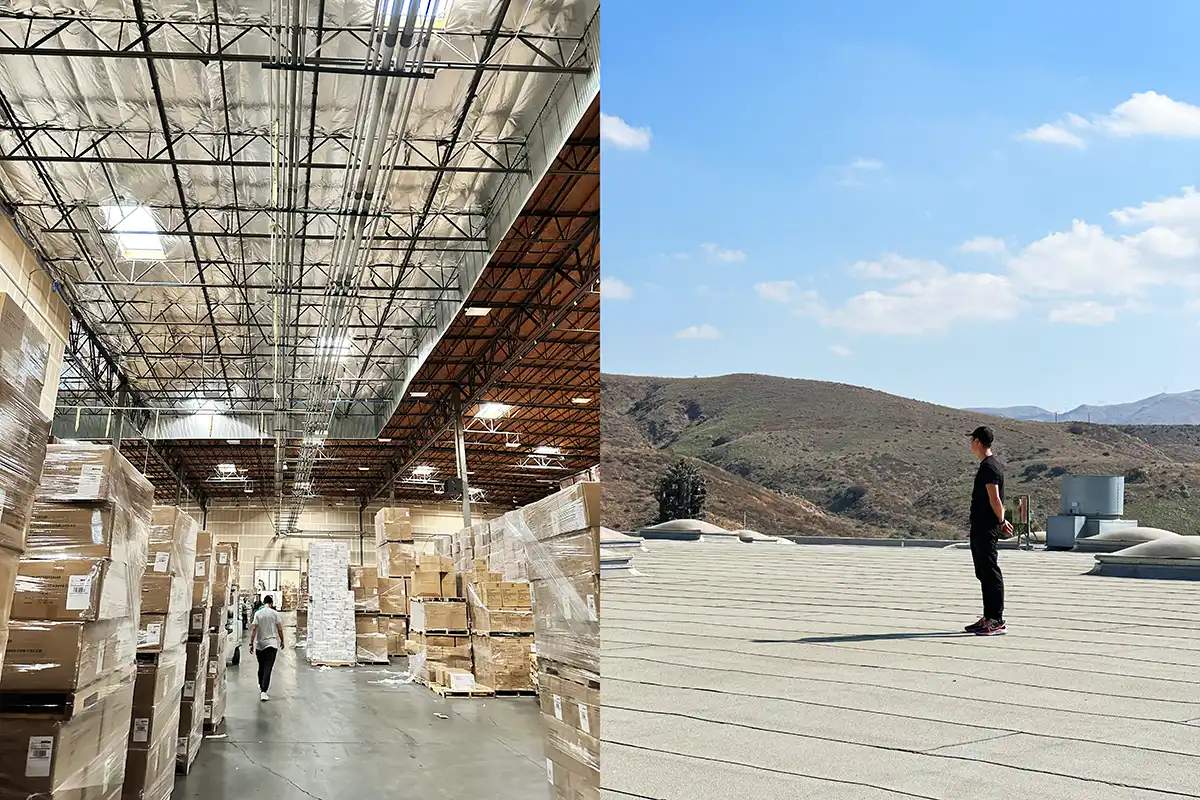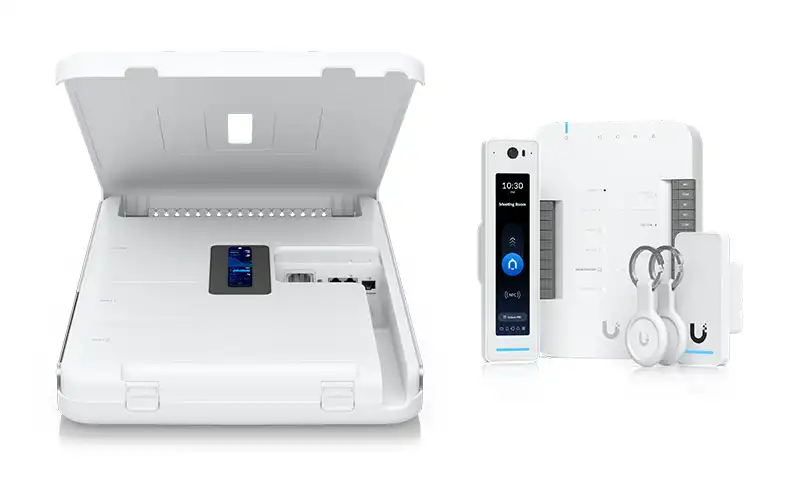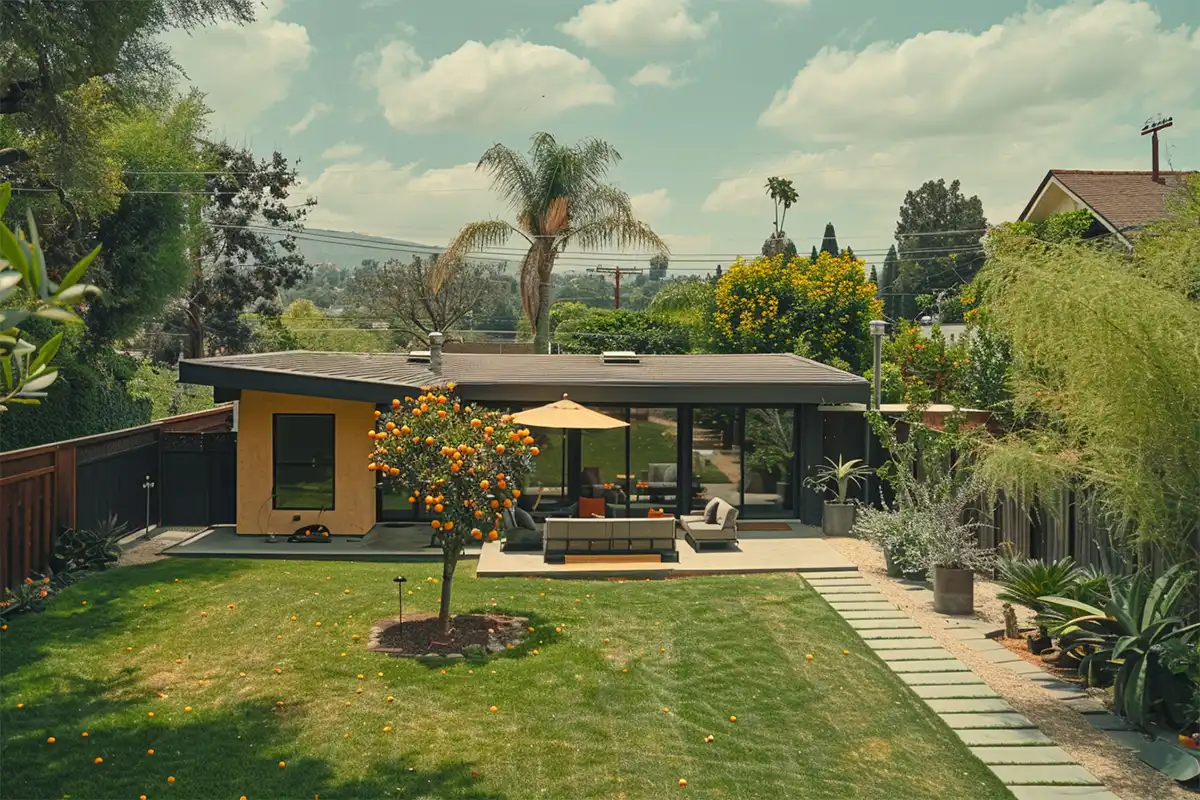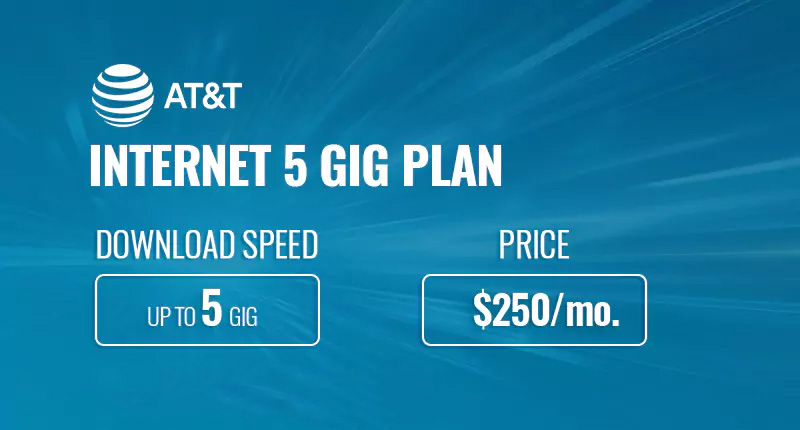Fiber Optic Installation
Our Fiber Optics Services
At YesTechie, we specialize in providing top-tier fiber optics services tailored to meet the diverse needs of our clients. From installation to consultation, our team of experts is equipped to handle all aspects of fiber optic technology.
Fiber Optic Line Installation
Our fiber optic cable installation service is designed to cater to both commercial and residential needs. Whether it's laying fiber optic cable underground for a new office park, or installing fiber optic cable in a modern warehouse for high-speed internet access, our team ensures a seamless and efficient installation process. We understand the importance of a reliable network, which is why we focus on precision in every step – from planning to the actual laying and connecting of fiber optic cables. Our commitment to quality and adherence to industry standards guarantees optimal performance and longevity of your fiber optic network.
Fiber Optic Termination, Splicing, and Testing Service
- Fiber Optic Termination: Our fiber optic termination service involves connecting fiber or wire to devices like wall outlets or equipment. This process is crucial for enabling connections between the cable and other devices or cables. Proper termination is essential for protecting the fibers from dirt and damage and for minimizing light loss, thereby enhancing the efficiency and smooth operation of the network.
- Fiber Splicing: We offer expert fiber optic splicing services, including fusion splicing, to seamlessly join two fiber optic cables. This technique is particularly valuable when an existing cable isn't long enough for the required distance. Our skilled technicians ensure a high-quality splice, maintaining the integrity and performance of the fiber optic link.
- Testing Services: Recognizing the rapid evolution of high-speed optical fiber systems, our testing services are designed to meet the increasing demands for accuracy and precision. We employ advanced testing methodologies to ensure that the fiber infrastructure is fully capable of supporting the latest applications and services.
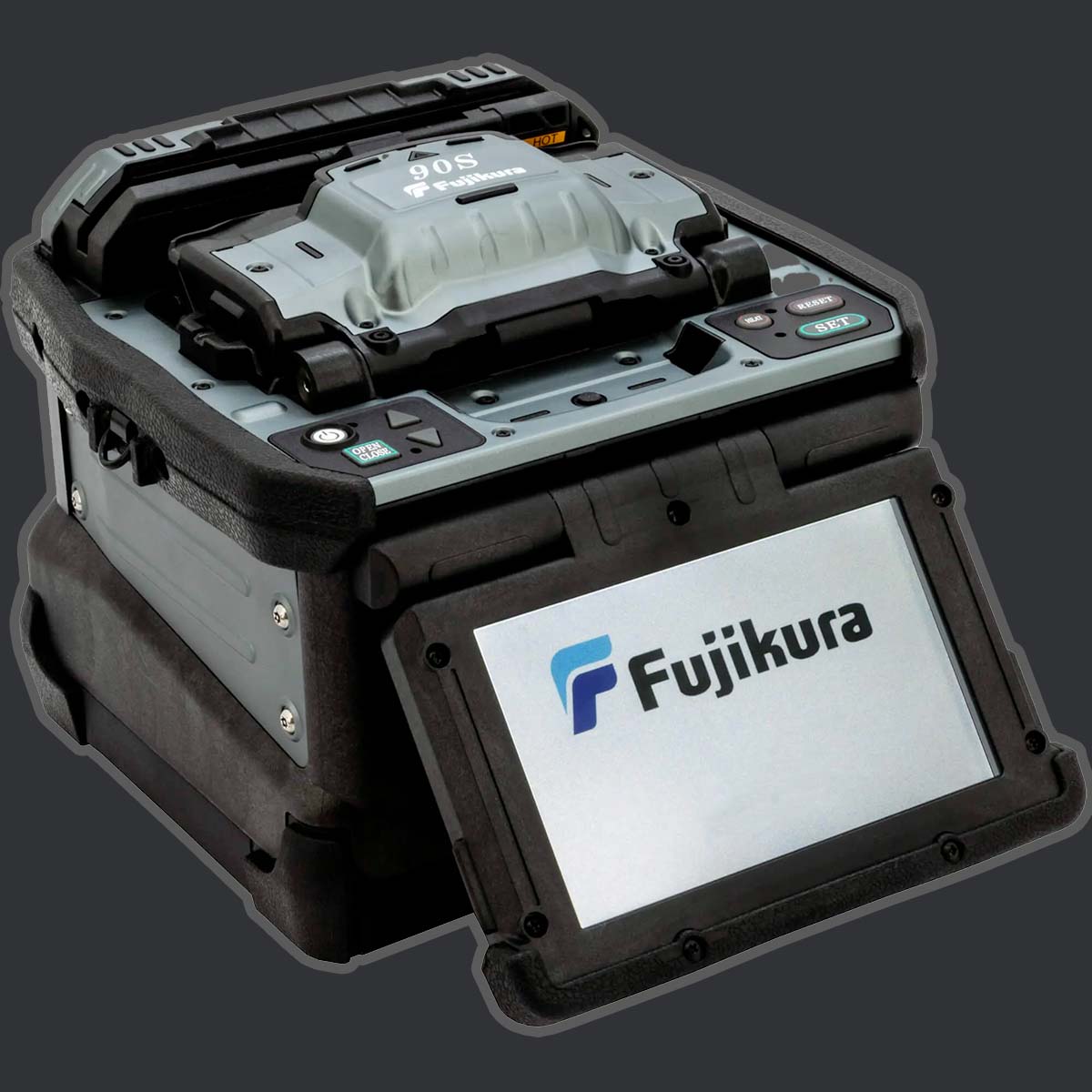
Los Angeles Fiber Optic Consulting
In addition to installation and maintenance services, we offer specialized fiber optic consulting in Los Angeles. Our team of experienced consultants provides expert advice on all aspects of fiber optic technology – from network design and material selection to cost analysis and project management. We assist clients in navigating the complexities of fiber optic installations, ensuring that they make informed decisions that align with their specific needs and budget. Our local expertise in Los Angeles also means that we are well-versed in regional regulations and requirements, ensuring compliance and efficiency in all our projects.
Why Choose YesTechie for Your Fiber Optic Needs?
Selecting YesTechie means partnering with a leader in fiber optics installations. Our extensive experience and deep expertise ensure that your project is in the most capable hands.
- Cost Efficiency: We understand that the cost of a fiber optic project can escalate quickly if not designed properly. Our team at YesTechie is well-versed in this technology, ensuring that your fiber optic network is designed most efficiently and cost-effectively.
- Expertise and Experience: With years of specialized work in fiber optics, YesTechie stands out for our technical proficiency and a proven track record of successful installations.
- Quality and Precision: We are committed to delivering installations that are not just technically sound but also optimized for efficiency and future scalability.
- Customized Solutions: Understanding that each project is unique, we tailor our solutions to meet your specific requirements, ensuring optimal outcomes.
- Your Satisfaction, Our Priority: At YesTechie, exceeding your expectations is our goal. We strive for excellence in every project, ensuring your complete satisfaction.
Ready to experience the YesTechie difference? Contact us today to discuss your fiber optics installation needs and discover how we can bring unparalleled expertise to your project.
Understanding Fiber Optic Cable Types.
Fiber optic cables are pivotal in modern communication networks, offering high-speed data transmission with minimal loss. These cables are categorized into two main types: Multimode fibers (OM1, OM2, OM3, and OM4) and Singlemode fibers (OS1 and OS2), each designed for specific network requirements.
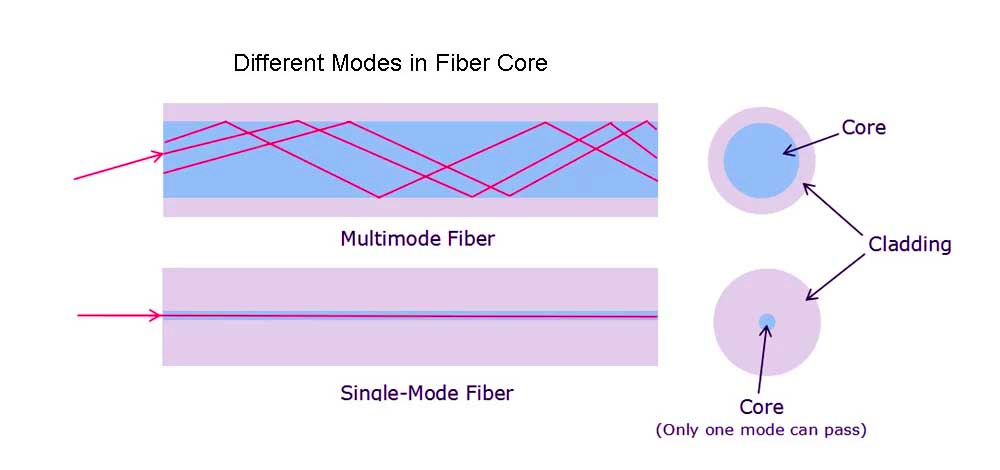
Multimode Fiber Optic Cables: OM1, OM2, OM3, OM4
OM1 and OM2 are the foundational types of multimode fiber optic cables. OM1 has a core size of 62.5 micrometers (µm) and supports short-distance data transmission, ideal for up to 1 Gigabit Ethernet applications. In contrast, OM2, with a 50 µm core, offers a bandwidth of up to 500 MHz, suitable for 1 Gigabit Ethernet over longer distances.
Advancing to OM3 and OM4, these fibers are tailored for high-speed network applications. OM3, easily identified by its aqua jacket, has a 50 µm core and is optimized for laser-based equipment, supporting 10 Gigabit Ethernet up to 300 meters. OM4 further enhances this, offering a higher bandwidth of 4700 MHz and extending 10 Gigabit Ethernet reach up to 550 meters, and is capable of supporting 100 Gigabit Ethernet at shorter distances.
Singlemode Fiber Optic Cables: OS1, OS2
For longer distance applications, OS1 and OS2 singlemode fibers are the go-to options. With a core size of approximately 9 µm, these fibers allow only one mode of light to propagate, enabling longer distance transmission with lower attenuation. OS1 is typically used indoors, such as within buildings or campus settings, while OS2 is suited for outdoor applications, including long-haul networking and undersea cabling.
Choosing the Right Fiber Optic Cable
Selecting the right type of fiber optic cable, whether it's OM1, OM2, OM3, OM4, OS1, or OS2, depends on various factors like transmission distance, data rate, and budget. As network demands evolve, these fibers continue to be refined for faster and more reliable data transmission.
Exploring Fiber Optic Connectors: Types and Applications
Exploring Fiber Optic Connectors: Types and Applications Fiber optic connectors play a crucial role in the world of fiber optics, serving as the critical interface between fiber optic cables and the devices they connect. Understanding the different types of fiber optic connectors and their specific applications is essential for anyone involved in network design, installation, or maintenance.
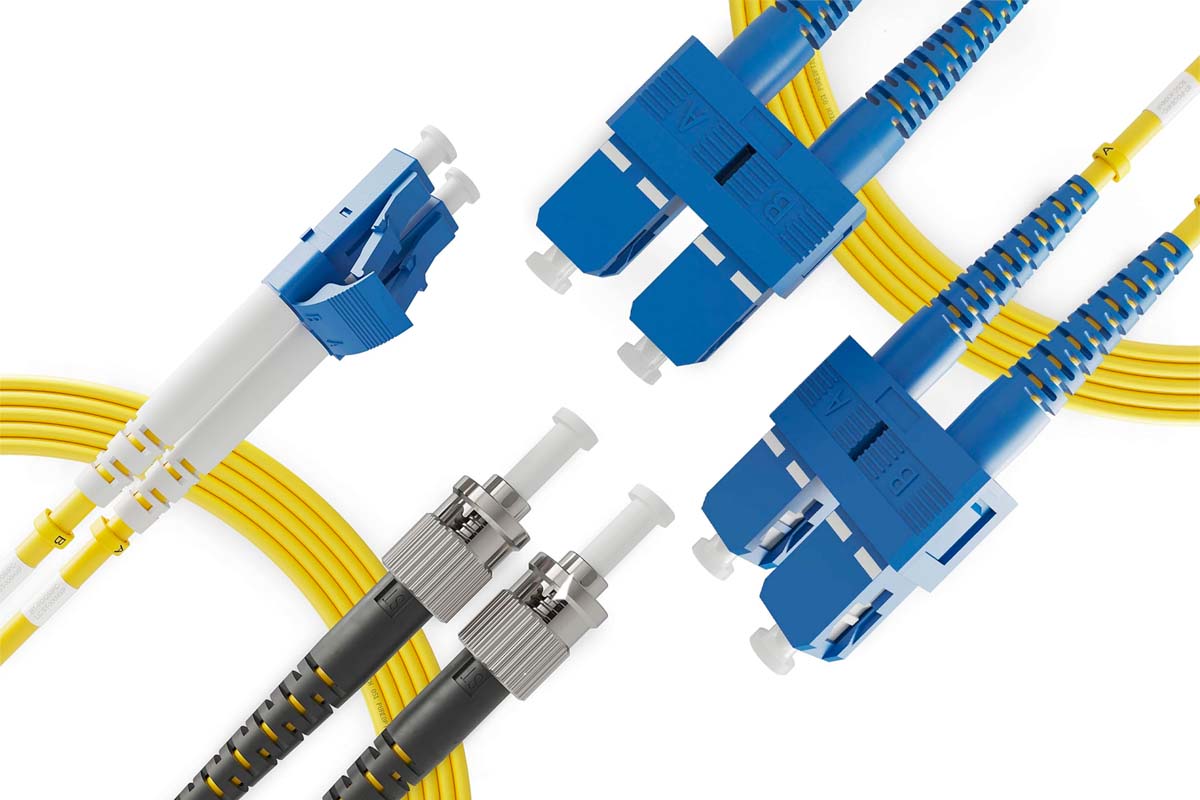
Key Types of Fiber Optic Connectors
- SC (Subscriber Connector or Standard Connector): Known for its push-pull latching mechanism, the SC connector is widely used due to its durability and low-cost. It's commonly employed in data communication and telecommunication networks.
- LC (Lucent Connector): The LC connector is a small form factor connector that has become increasingly popular, especially in data center environments. Its compact size and reliable performance make it suitable for high-density applications.
- ST (Straight Tip): The ST connector, with its bayonet-style locking mechanism, is primarily used in multimode networks, such as those in campus or building backbones. It's known for its ease of installation and strong connection.
- FC (Ferrule Connector): Characterized by its threaded coupling, the FC connector offers high precision and is typically used in single mode applications, including in telecommunications and in high-vibration environments.
- MTP/MPO (Multi-fiber Termination Push-on/Pull-off): These connectors are designed for high-density applications, capable of connecting multiple fibers (up to 12 or more) in a single plug. They are ideal for advanced data centers and high-speed networks.
FAQ
Can existing buildings be retrofitted with fiber optic cables?
Yes, existing buildings can be retrofitted with fiber optic cables. The process may involve running cables through existing ducts or conduits, or installing new pathways.
How long does it take to install fiber optic cable?
The duration of a fiber optic cable installation varies depending on the project's scale, the terrain, and the length of cable being installed. Small projects may take a few days, while larger installations could take several weeks.
Can fiber optic cables be installed in residential areas?
Yes, fiber optic cables can be installed in residential areas and are increasingly common for home internet and television services. They provide faster and more reliable connections compared to traditional copper cables.
Why choose fiber optics over traditional cabling?
Fiber optics offer several advantages over traditional copper cabling, including higher bandwidth capacity, faster data transmission speeds, greater resistance to electromagnetic interference, and longer distance transmission without signal loss.
How do I know if my equipment can be connected to a fiber optic network?
To determine if your equipment is compatible with a fiber optic network, you should check the specifications of your devices for fiber optic connectivity options. Most modern equipment designed for high-speed internet and data transfer will have a fiber optic port, often labeled as an 'optical' port. If you're unsure, consult the equipment's manual or contact the manufacturer. Additionally, a fiber optic service provider can assess your equipment and provide adapters or converters if necessary to ensure compatibility with the fiber optic network.
What geographical areas do you serve?
We currently serve South California. Please contact us for more information if your location is not listed, as we occasionally handle projects outside these areas.
Do you handle both indoor and outdoor installations?
Yes, we are equipped to handle both indoor and outdoor fiber optic installations, ensuring optimal performance in various settings.
How can I get a quote for my project?
You can request a quote by contacting us with your project details, (818) 275-2707. We may need to perform a site visit or gather more information to provide an accurate estimate.
